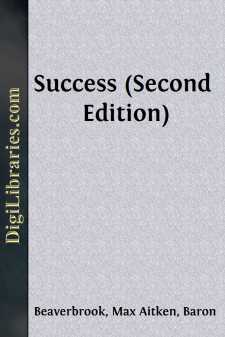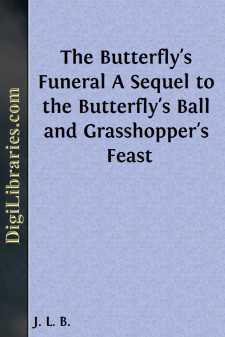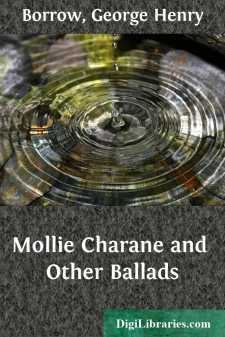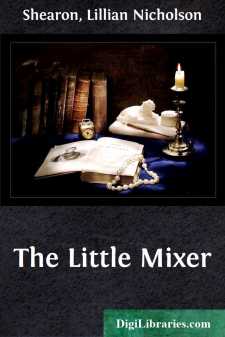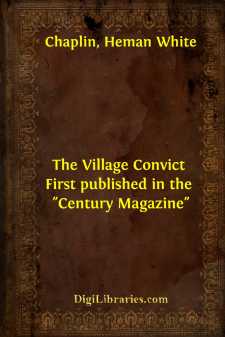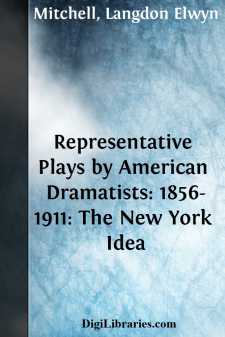Categories
- Antiques & Collectibles 13
- Architecture 36
- Art 48
- Bibles 22
- Biography & Autobiography 813
- Body, Mind & Spirit 142
- Business & Economics 28
- Children's Books 15
- Children's Fiction 12
- Computers 4
- Cooking 94
- Crafts & Hobbies 4
- Drama 346
- Education 46
- Family & Relationships 57
- Fiction 11828
- Games 19
- Gardening 17
- Health & Fitness 34
- History 1377
- House & Home 1
- Humor 147
- Juvenile Fiction 1873
- Juvenile Nonfiction 202
- Language Arts & Disciplines 88
- Law 16
- Literary Collections 686
- Literary Criticism 179
- Mathematics 13
- Medical 41
- Music 40
- Nature 179
- Non-Classifiable 1768
- Performing Arts 7
- Periodicals 1453
- Philosophy 64
- Photography 2
- Poetry 896
- Political Science 203
- Psychology 42
- Reference 154
- Religion 513
- Science 126
- Self-Help 84
- Social Science 81
- Sports & Recreation 34
- Study Aids 3
- Technology & Engineering 59
- Transportation 23
- Travel 463
- True Crime 29
Sort by:
CHAPTER I THE CHANGE It is all my own fault. I was too free with my tongue. I said in a moment of bitterness: "What can a Bishop do with a parish priest? He's independent of him." It was not grammatical, and it was not respectful. But the bad grammar and the impertinence were carried to his Lordship, and he answered: "What can I do? I can send him a curate who will break his heart in...
more...
SUCCESS Success—that is the royal road we all want to tread, for the echo off its flagstones sounds pleasantly in the mind. It gives to man all that the natural man desires: the opportunity of exercising his activities to the full; the sense of power; the feeling that life is a slave, not a master; the knowledge that some great industry has quickened into life under the impulse of a single brain. To...
more...
by:
J. L. B.
Oh, ye, who so lately were blythesome and gay,At the Butterfly’s Banquet, carousing away;Your feasts and your revels of pleasure are fled,For the soul of the Banquet, the Butterfly’s dead.No longer the Flies and the Emmets advance,To join with their friends in the Grasshopper’s dance;For see, his thin form o’er the favourite bend,And the Grasshopper mourns for the loss of his friend.And hark, to...
more...
by:
Brillat-Savarin
The excellent man to whom we are indebted for this book has described himself, with so much charm, nature and truth; the principal events of his life have been recorded in such an agreeable and faithful manner that very few words will suffice to finish the story. Brillat Savarin (Anthelme) Counsel of the Court of Cassation, member of the Legion of Honor, member of the Society for the Encouragement of...
more...
Of the many varieties of keeper, I propose, at present, to consider only the average sort of keeper, who looks after a shooting, comprising partridges, pheasants, hares, and rabbits, in an English county. Now it is to be observed that your ordinary keeper is not a conversational animal. He has, as a rule, too much to do to waste time in unnecessary talk. To begin with, he has to control his staff, the...
more...
MOLLIE CHARANE “O, Mollie Charane, where got you your gold?” Lone, lone you have left me here.“O not in the curragh, deep under the mould.” Lone, lone, and void of cheer. “O, Mollie Charane, where got you your stock?” Lone, lone you have left me here.“O not in the curragh from under a block.” Lone, lone, and void of cheer. “O, Mollie Charane, where got you your...
more...
THE LITTLE MIXER There was no fault to be found with the present itself; the trouble lay in the method of transportation. This thought was definite enough in Hannah's mind, but she had to rely upon a seven-year-old vocabulary for expression, and grown-ups are notably dull of comprehension. Even mothers don't always understand without being told exactly in so many words. "I didn't say...
more...
"Wonder 'f Eph's got back; they say his sentence run out yisterday." The speaker, John Doane, was a sunburnt fisherman, one of a circle of well-salted individuals who sat, some on chairs, some on boxes and barrels, around the stove in a country store. "Yes," said Captain Seth, a middle-aged little man with ear-rings; "he come on the stage to-noon. Would n't hardly...
more...
by:
Richard Stead
CHAPTER IA BOUT AT SINGLESTICK "Get thee down, laddie, I tell thee." This injunction, given for the third time, and in a broad north-country dialect, came from the guard of the York and Newcastle coach, a strange new thing in England. A wonderful vehicle the York and Newcastle coach, covering the eighty-six long miles between the two towns in the space of two-and-thirty hours, and as yet an...
more...
LANGDON MITCHELL (Born Philadelphia, Pa., February 17, 1862) The performance of "The New York Idea" at the Lyric Theatre, New York, on November 19, 1906, was one of the rare, distinguished events in the American Theatre. It revealed the fact that at last an American playwright had written a drama comparable with the very best European models, scintillating with clear, cold brilliancy, whose...
more...



